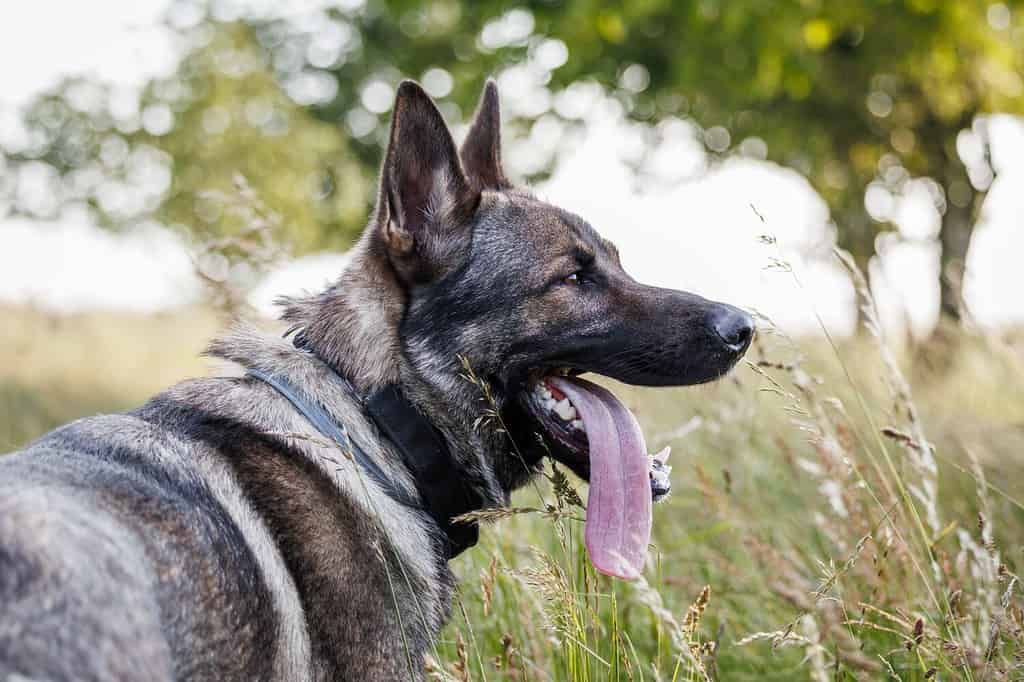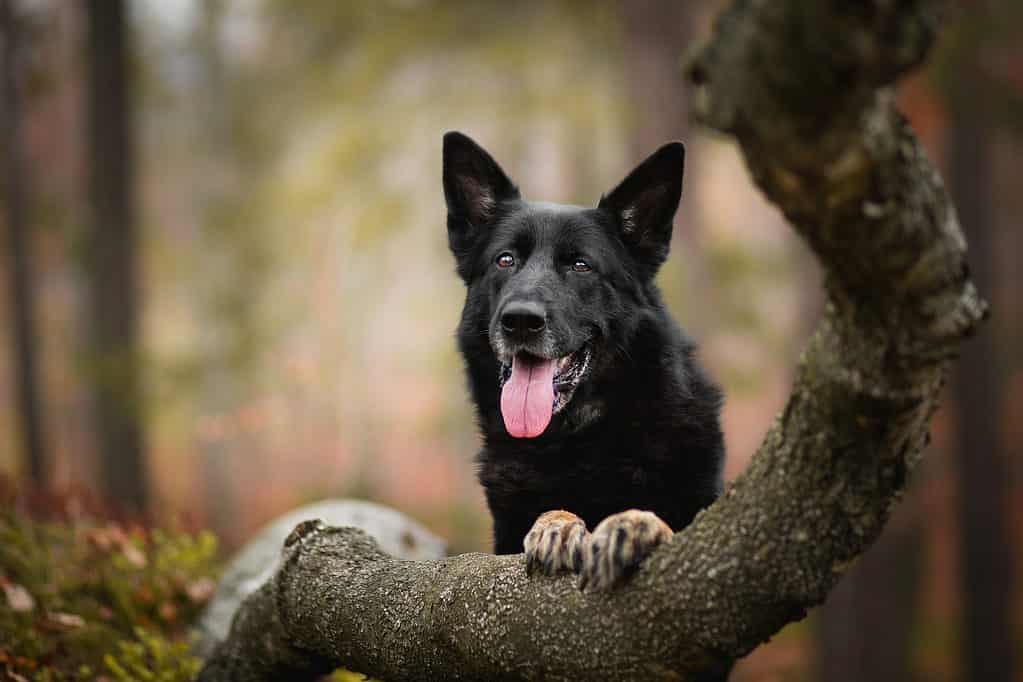Exploring the fascinating realm of dog intelligence, the German shepherd rises to the top. Known for their winning combination of loyalty and smarts, these dogs, often called GSDs, have gained fame as hardworking service dogs and loving family pets.
Based on the in-depth studies by well-known dog expert Stanley Coren, German shepherds proudly hold the title of the third smartest dog breed. So, how smart are German shepherds, really? To fully understand this, we need to look beyond the numbers, digging into the unique aspects of a German shepherds personality and charm that we all know and love.

Based on the in-depth studies by well-known dog expert Stanley Coren, German shepherds proudly hold the title of the third smartest dog breed
©Bigandt_Photography/ via Getty Images
Exploring the Intelligence of German Shepards
German shepherd intelligence isn’t just about their third-place ranking by Stanley Coren. Their smarts are broken down into three main areas: instinctive intelligence, adaptive intelligence, and working and obedience intelligence.
Instinctive Intelligence
Instinctive intelligence is the skills German shepherds were bred for, such as herding or guarding. You can see their instinctive intelligence in their great situational awareness, sharp senses, and ability to see potential threats or risks.
Adaptive Intelligence
Adaptive intelligence refers to their problem-solving abilities. This breed demonstrates an uncanny knack for finding solutions to intricate problems, showcasing impressive memory recall, and displaying a quick learning curve from past experiences.
Working and Obedience Intelligence
Working and obedience intelligence relate to this breeds trainability. Their instinctive and adaptive intelligence equip them well for roles needing strict training and quick thinking, such as police dogs, search and rescue dogs, and guide dogs

Working and obedience intelligence relate to a German shepherds trainability.
©encierro/Shutterstock.com
The Cognitive Capabilities of German Shepards: Understanding Their Problem-Solving Skills and Brain Size
People recognize German shepherds not only for their looks and agility but also for their intellectual prowess. Key components of their cognition are their problem-solving skills and the comparative size of their brains against other breeds.
Problem-Solving Skills
German shepherds are able to think critically and solve problems effectively. Their curiosity and love of learning help them learn new commands quickly, and their great memory helps them remember and repeat these commands. They’re good at understanding cause-and-effect, can solve complicated puzzles, and can learn to do tasks like opening doors or fetching specific items on command.
Brain Size
The size of a their brain also plays a big part in their intelligence. Even though a larger brain doesn’t always mean more intelligence, German shepherds have a well-developed brain, especially in areas linked to learning, memory, and problem-solving.

German shepherds have a well-developed brain, especially in areas linked to learning, memory, and problem-solving.
©marketalangova/Shutterstock.com
German Shepards Learning Aptitude: How Quick and Adaptive Are They?
Speed of Learning
German shepherds learn quickly. On average, they can understand new commands in less than five tries and follow these commands 95% of the time. Their great memory helps their fast learning, letting them remember and use learned commands even after a long time. This trait, along with their desire to please their human friends, contributes to their fast learning rate.
Adaptability
A German shepherds adaptability is just as impressive. These dogs can adjust to a wide range of environments and situations, whether they’re working as a police dog in a busy city, helping a person with disabilities, or living as a pet in a suburban home. Their adaptive intelligence lets them not only learn from their environment but also use learned skills in new ways.

Their adaptive intelligence lets them not only learn from their environment but also use learned skills in new ways.
©Alan Malone/Shutterstock.com
Intelligence Ranking: Where Do German Shepards Stand Among Other Breeds?
In the world of dog intelligence, German shepherds hold an impressive position. According to Stanley Coren’s respected ranking, German shepherds rank third out of 138 breeds. They are surpassed only by Border Collies and Poodles, highlighting the superior cognitive abilities of these breeds. However, the intelligence of individual dogs can vary, so it’s important to remember that not all German shepherds will demonstrate the same cognitive strengths.
Unlocking German Shepards Intelligence Potential: Training Techniques and Mental Stimulation
German shepherds are naturally smart, but the right training techniques and mental stimulation are important to bring out their full potential. These not only improve their skills but also help their overall well-being.
Training Techniques
Effective training starts with understanding the German shepherds nature. They are energetic, love to please, and are easy to train. Using positive reinforcement methods, like treats, praises, or toys as rewards, can work really well. It’s best to keep training sessions short but frequent to keep their interest and prevent them from getting tired.
Mental Stimulation
Mental stimulation is just as important as physical exercise for a German shepherd. Providing them with puzzle toys, teaching them new tricks, or setting up obstacle courses can keep their minds active and engaged. Activities like hide and seek, fetch, or even interactive games involving scent detection can work wonders for their mental stimulation. These not only challenge their thinking but also tap into their natural instincts and abilities.
The photo featured at the top of this post is © iStock.com/diego_cervo
Thank you for reading! Have some feedback for us? Contact the AZ Animals editorial team.






